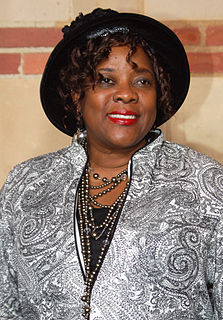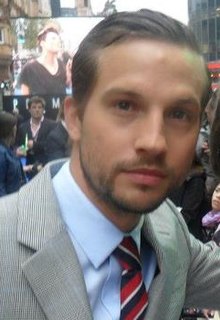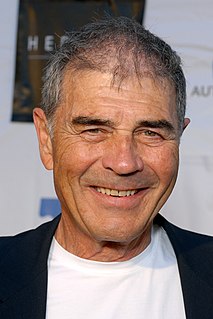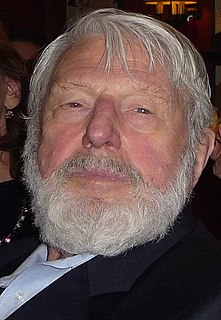A Quote by Loretta Devine
There are etiquette things that actors, new actors, need to know about. Because it only takes one mess-up on a set to get fired. Not being where you're supposed to be or saying something to the wrong person that you're not supposed to say, and those are like basic things that the actors need to know.
Related Quotes
On 'Silver Linings Playbook,' David O. Russell is the master at getting his actors to give him something that he doesn't expect. He loves to keep things spontaneous. He talks to the actors throughout a take because, in real life, you don't know what the next person is going to say; you don't know when you're going to get interrupted.
My true role is to get actors to understand what the camera is doing and what my intent is so they don't waste their good stuff on over-the-shoulder shots and wide shots. They need to know when we're going in to get something important, so they know to really go for it. No human being can give you 1,000 percent on every single take or shot, so you need to let them know what you're heading for. It's important that the actors know they're being looked after and being recorded in a way so they can do their best.
When I got into the movie business, working with actors was the one thing I was really weak at. I didn't know what to say to actors. They scared me and intimidated me. The actors that I've worked with who have had a lot of experience, or who I've even grown up watching as a kid, were really scary. I was like, "What am I going to say to this person?" But, I've matured. It's fun. I understand what actors do now.
I like to think in camera, but at the last minute the most important thing is that there is something happening between the actors. But good actors can have a lot of scenes going around them but sometimes it sort of helps the performance because it takes their mind off of who they are supposed to be.
I love actors. Part of that is my theater background and being a writer who cares about performance. Actors have usually chosen their profession because they have a dream of doing it and they want to express something about the world. That's the same thing that I have with writing. Most of the good actors get into it for those reason, rather than for reasons of fame or fortune, or anything like that, and that's where I'm coming from, as a storyteller.
I decided I would open this little actors' workshop I always told actors to look for. That gave me something to do on Wednesday nights, and after about a year of that, I realized that some of the things I was saying to actors probably had broader application. I ran into a magazine called 'Speakers For Free.'
I immensely enjoy any experience directing. I've never hated it, and I've had bad experiences. At the end of the day, I just feel like I'm supposed to be on a set. I'm supposed to be working with creative people. I'm supposed to be working with actors and I'm supposed to be manning a project in this capacity. It's interesting.
I don't like realism. We already know the real facts about li[fe], most of the basic facts. I'm not interested in repeating what we already know. We know about sex, about violence, about murder, about war. All these things, by the time we're 18, we're up to here. From there on we need interpreters. We need poets. We need philosophers. We need theologians, who take the same basic facts and work with them and help us make do with those facts. Facts alone are not enough. It's interpretation.
What I learned about acting, from my experiences directing, is why so many producers and directors don't like actors. You go through all of this work securing a location, figuring out how to get electricity there, how to get trucks parked where they need to be, and where catering is going to come from. And if the actors don't come up with some magic, it actually didn't matter. That creates a lot of animosity towards the actors.
An actor is supposed to emulate life. Instead, alas, many are imitating other actors. You don't fashion your knowledge of theatre or your approach to a role on the basis of what other actors have done. This kind of thinking is a great danger, especially in dealing with TV producers who frequently say things like, 'This is a Sean Connery type.'




































